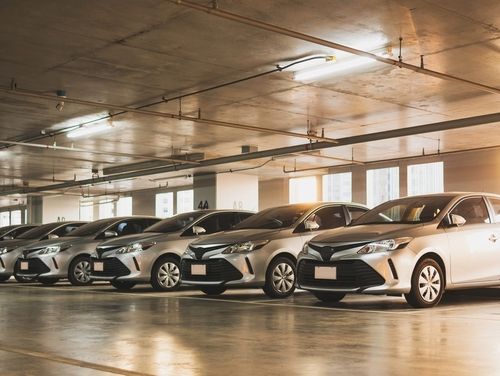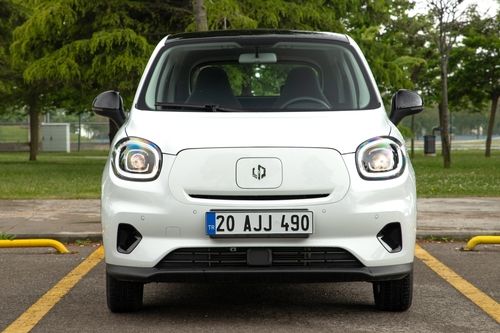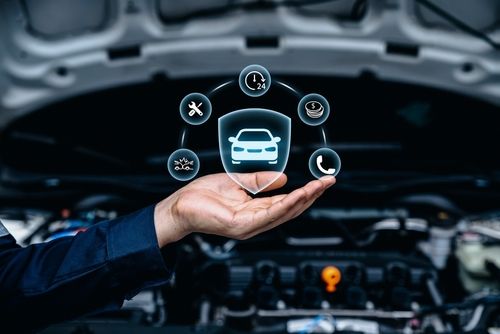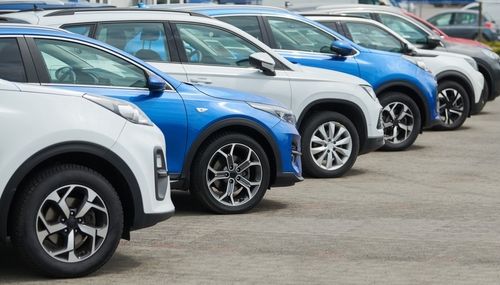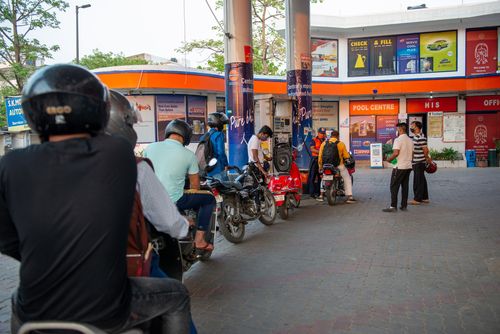Is It Legal to Drive Without Motor Insurance in India?
Written by Upstox Desk
Published on May 27, 2025 | 6 min read
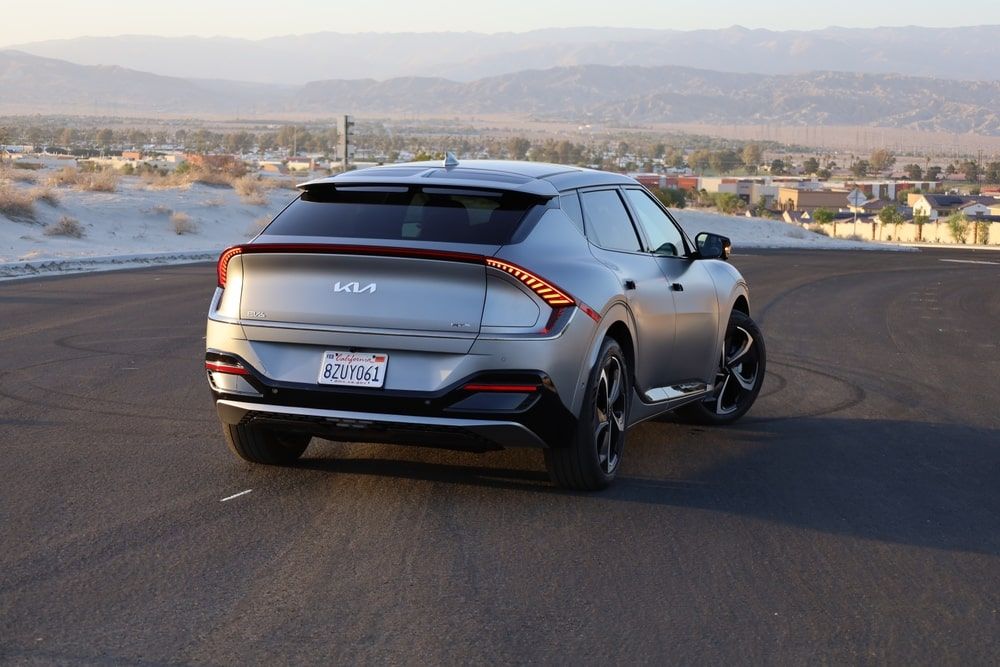
Vaibhav lives in Lucknow and is a second-generation business owner. From the outset of his career, he recognised the importance of saving and investing. He religiously follows the rule of setting aside almost 30% of his income for savings. However, he does not understand the concept of insurance. He maintains a decent emergency fund for any unplanned expenses, but does not have term insurance or even health insurance.
He applied similar logic to motor insurance and did not renew his bike’s insurance after one year of purchase. He thought the eventual decision to secure his two-wheeler should be his choice. As he was going back to his house late at night, he was stopped for a routine inspection by traffic cops at Hazratganj. He was slapped a fine of ₹2000 as he was driving without valid insurance and was reprimanded by the duty officer to get the insurance as soon as possible.
People often do not realise the importance of motor insurance, and this is the reason why more than 50% of vehicles in India (private and commercial) do not have a valid insurance. One of the common arguments for staying uninsured is the presence of an ‘emergency’ fund, or that people do not consider insurance worthwhile. However, it is illegal to drive without a valid insurance in India, and there can be serious penalties and even a jail term if you are caught driving a car or two-wheeler without at least a third-party insurance.
This blog explores the legal implications, penalties, and financial risks of skipping motor insurance and why it’s never worth the gamble.
Understanding Motor Insurance in India
Motor insurance in India is broadly classified into: comprehensive and third-party liability only insurance. Third-party insurance is the minimum legal requirement under the Motor Vehicles Act, 1988. It covers injuries, death, or property damage caused to another person by your vehicle. As the name suggests, it covers only damage to third-party property and loss of life, and does not pay for any repair bills, theft, or complete loss of your vehicle.
Comprehensive Insurance, on the other hand, offers wider coverage. It includes third-party liability, as well as damage to your vehicle resulting from accidents, natural disasters, theft, fire, and vandalism. It is an optional tool, but we strongly recommend opting for comprehensive insurance, as the overall risk to your life and vehicle in Indian conditions is too high to be ignored.
Legal Implications of Driving Without Insurance
Before moving on to the legal implications, here is a very important footnote from Upstox. Driving a car or a two-wheeler is an extremely responsible job. When you take out a vehicle on the road, you are responsible for the safety of people around you, your vehicle and yourself. Hence, legal or not, you must always have adequate coverage for your vehicle by opting for comprehensive insurance.
However, if you are more concerned about the legal implications, here are the penalties that you might need to face if you drive without a valid insurance:
Penalties for Driving Without Valid Motor Insurance
| Offence Type | Penalty | Additional Consequence |
|---|---|---|
| First Offence | ₹2,000 fine and/or up to 3 months imprisonment | Legal warning; may affect driving record |
| Subsequent Offence | ₹4,000 fine and/or 3 months imprisonment | Considered a serious offence; might be recorded permanently |
Other Repercussions
| Action | Implications |
|---|---|
| License Suspension | The authorities can temporarily or permanently suspend a driving license. |
| Impounding the Vehicle | Your vehicle may be seized until valid insurance is submitted. |
| Court Proceedings | In accident cases, you may be summoned to court and face fines or lawsuits. |
Financial Risks
People often fail to understand the importance of motor vehicle insurance as a financial planning tool. Imagine yourself in a situation where your car has been involved in an accident and the workshop’s estimate is ₹ 80,000. If you had opted for comprehensive insurance with relevant add-ons, all you would have had to pay was some filing charges, and everything else would have been taken care of by your insurer. There are also cashless options available, allowing you to get everything repaired without paying anything upfront from your pocket.
Besides this, one of the immediate risks in the absence of mandatory third-party insurance is paying out-of-pocket compensation in case of an accident. You may be responsible for covering injuries or death of third parties, damage to vehicles or property of third parties, and medical and legal expenses.
Common Misconceptions About Motor Insurance
Here are some common statements people often make that describe their misconceptions about motor insurance:
| Misconception | Reality |
|---|---|
| “I rarely drive, so I don’t need insurance.” | Insurance is mandatory, even for infrequent use. |
| “Old vehicles don’t need insurance.” | All vehicles must have valid third-party insurance. |
| “I’ll buy it only when something happens.” | Insurance cannot be purchased after an incident—it must be active beforehand. |
| “Comprehensive plans are too expensive.” | Affordable plans exist; comparison tools help find the best value. |
| “Digital insurance isn’t valid.” | Online policies are legally recognised and widely accepted. |
| “I cannot carry a bunch of physical documents.” | Digital copies on Digi Locker and the mParivahan app are valid. |
Summing up
Driving your vehicle on the road without proper insurance in India is not only invalid but also highly dangerous for you, your vehicle, and third parties. You virtually gamble with your finances and legal standing by doing this. The law mandates that every vehicle have at least third-party insurance, and failing to comply can result in hefty fines, potential imprisonment, and complete personal liability in the event of an accident. Most importantly, having comprehensive motor insurance is a crucial shield that provides complete peace of mind.
FAQs
-
Is it mandatory to have motor insurance in India?
Yes, under the Motor Vehicles Act, 1988, third-party motor insurance is compulsory for all vehicles.
-
What is the penalty for driving without insurance in India?
A fine of ₹2,000 and/or up to 3 months imprisonment for the first offence; ₹4,000 for repeat offences.
-
Can I drive a new vehicle without insurance for a few days?
No. Insurance is required from the moment a vehicle is on the road, including for test drives.
-
Is digital insurance accepted by traffic authorities?
Yes, digital motor insurance policies are legally valid and accepted across India.
-
Will insurance cover damage to my own vehicle?
Only a comprehensive policy covers own damage. Third-party insurance does not.
About Author
Upstox Desk
Upstox Desk
Team of expert writers dedicated to providing insightful and comprehensive coverage on stock markets, economic trends, commodities, business developments, and personal finance. With a passion for delivering valuable information, the team strives to keep readers informed about the latest trends and developments in the financial world.
Read more from UpstoxUpstox is a leading Indian financial services company that offers online trading and investment services in stocks, commodities, currencies, mutual funds, and more. Founded in 2009 and headquartered in Mumbai, Upstox is backed by prominent investors including Ratan Tata, Tiger Global, and Kalaari Capital. It operates under RKSV Securities and is registered with SEBI, NSE, BSE, and other regulatory bodies, ensuring secure and compliant trading experiences.


















